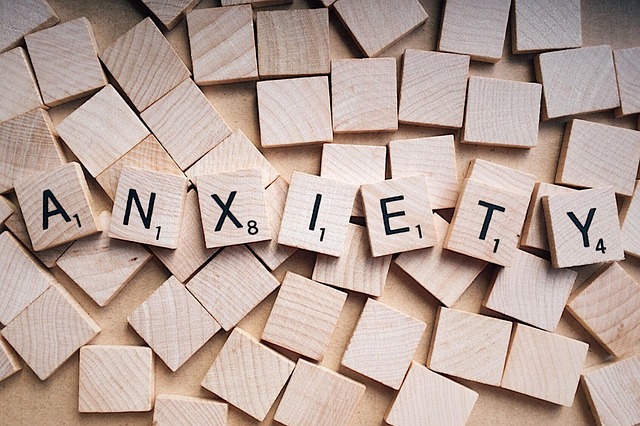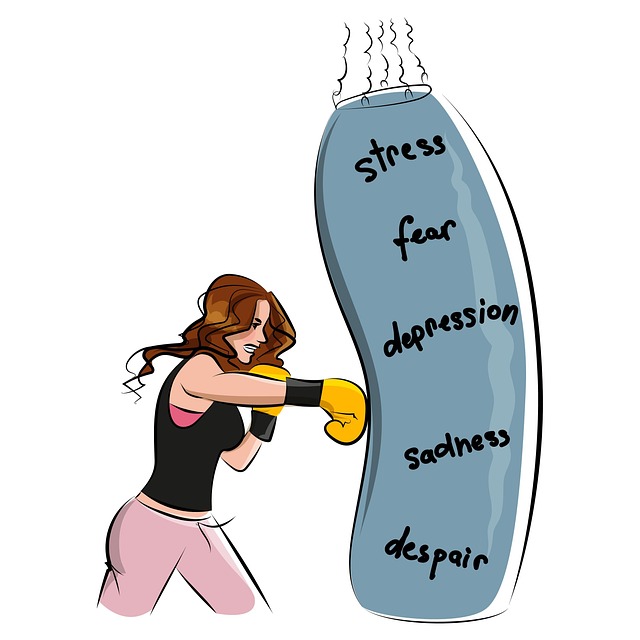Stress in young children is a growing concern, with academic pressures and social media exposure on the rise. Family counseling and professional guidance, including Cognitive Behavioral Therapy (CBT) and mindfulness techniques, offer effective strategies to enhance emotional regulation and mental wellness. Through these approaches, parents can improve communication, teach self-care routines, and empower kids with tools to manage stress, fostering a balanced home life and preparing them for future challenges. Key practices include counseling sessions, incorporating compassion cultivation, participating in community programs, and engaging in mental wellness coaching, all aimed at reducing stress and promoting holistic well-being in young minds.
Stress reduction is crucial for young children’s healthy development, and parents play a pivotal role. This article explores effective methods to help kids manage stress, offering insights from diverse angles. We delve into understanding childhood stress from a parent’s perspective, examining the power of family counseling as a collaborative solution. Cognitive Behavioral Therapy (CBT) and mindfulness techniques are highlighted for their positive impact on children’s mental well-being. Additionally, we provide strategies to create a supportive home environment, emphasizing that prevention is key in mitigating stress among young minds.
- Understanding Stress in Young Children: A Parent's Perspective
- The Role of Family Counseling in Managing Stress
- Cognitive Behavioral Therapy (CBT): A Powerful Tool for Kids
- Mindfulness and Relaxation Techniques for the Whole Family
- Creating a Supportive Environment at Home: Prevention is Key
Understanding Stress in Young Children: A Parent's Perspective

Stress in young children can often be overlooked, but it’s a significant concern for parents. Kids today face various pressures, from academic expectations to social media exposure, which can impact their emotional well-being. As a parent, recognizing and managing your child’s stress is vital. It involves understanding the triggers and teaching them healthy coping mechanisms. Therapy for young children, such as family counseling, can be a game-changer in addressing these issues.
Through professional guidance, parents can learn effective strategies to enhance their child’s emotional regulation and mental wellness. This process encourages open communication, helping kids express their feelings and develop inner strength. The earlier we equip them with these skills, the better prepared they’ll be to navigate life’s challenges. Additionally, the Mental Wellness Podcast Series Production offers valuable insights into various aspects of a child’s development, including stress management techniques tailored for young minds.
The Role of Family Counseling in Managing Stress

Family counseling plays a pivotal role in managing stress, especially when it comes to young children and their families. This type of therapy provides a safe space for all family members to express their feelings, address underlying issues, and develop healthier communication patterns. By incorporating self-care routine development for better mental health, the entire family can learn effective coping strategies and improve emotional regulation.
Counselors skilled in therapy for young children can help parents understand the impact of stress on their kids, teaching them positive thinking techniques to manage stress at home. This holistic approach ensures that each family member receives the support needed to maintain a balanced and peaceful household, fostering an environment conducive to overall well-being and happiness.
Cognitive Behavioral Therapy (CBT): A Powerful Tool for Kids

Cognitive Behavioral Therapy (CBT) is a highly effective tool for helping young children manage stress and anxiety. This evidence-based approach focuses on identifying and changing negative thought patterns, behaviors, and feelings that contribute to emotional distress. By engaging in CBT, kids learn valuable coping strategies tailored to their unique needs, empowering them to face challenges head-on.
Through family counseling sessions, parents and caregivers play a crucial role in supporting this process. They gain insights into their child’s internal experiences and learn how to reinforce positive behaviors at home. Integrating mindfulness meditation practices can further enhance these emotional healing processes, teaching children to remain calm and focused under pressure. This multi-faceted approach not only addresses current stress but also equips young minds with tools to prevent burnout in the future.
Mindfulness and Relaxation Techniques for the Whole Family

Mindfulness and relaxation techniques can be powerful tools for stress reduction within the whole family. These practices, often incorporated into family counseling sessions, offer a holistic approach to well-being. By teaching children as young as toddlers about breathing exercises and present-moment awareness, parents can cultivate an environment of calm and resilience. Such early exposure to mindfulness has been linked to better emotional regulation skills in both children and adults, even reducing symptoms of mental illness and burnout prevention strategies for healthcare providers.
Incorporating these techniques into daily routines doesn’t have to be complex. Simple activities like mindful walking or family meditation can help everyone unwind after a busy day. These practices not only promote individual mental health but also strengthen family bonds. Through therapy for young children and family counseling, parents gain valuable insights into supporting their child’s emotional needs, fostering open communication, and reducing the stigma associated with mental illness in the home environment.
Creating a Supportive Environment at Home: Prevention is Key

Creating a supportive environment at home is one of the most effective ways to reduce stress and foster mental wellness, especially for young children. Parents and caregivers play a pivotal role in shaping their child’s emotional well-being by implementing simple yet powerful practices. A calm and nurturing atmosphere can significantly prevent and manage stress, providing a solid foundation for healthy development.
This can be achieved through various means, such as incorporating compassion cultivation practices into daily routines, engaging in family counseling to address underlying issues, and even participating in community outreach programs that promote mental health awareness. By creating safe spaces at home, encouraging open communication, and adopting effective stress management techniques, parents can ensure their children receive the best support for their growing minds. Additionally, considering mental wellness coaching programs can offer valuable tools for both parents and children to navigate stress and build resilience.
Stress reduction methods tailored for young children, such as family counseling and cognitive behavioral therapy (CBT), offer powerful tools for parents. By fostering a supportive home environment and incorporating mindfulness techniques, families can proactively manage stress, ensuring their children thrive in a calm and nurturing setting. These holistic approaches not only address immediate concerns but also equip kids with lifelong coping skills, paving the way for improved mental well-being and resilience.














